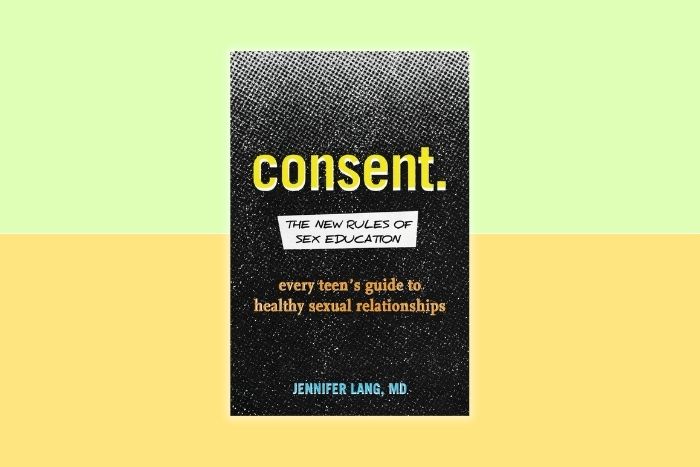
You can talk to your teen about consent without it being awkward.
When I was younger, the idea of discussing sex with my parents mortified me.
They must have felt some way about having the conversation, too, because we never did talk about it.
Kids these days are much more informed thanks to the internet and their peers.
Still, it’s important for us as parents to have candid conversations about things like sex, healthy relationships, and consent.
When should those conversations start?
According to Anitra Durand-Allen, MAMFT, a Licensed Marriage and Family Therapy Associate, “It’s never too early to begin the conversation about consent with your children. Helping children to understand physical and sexual boundaries begins long before they become interested in partnered relationships.”
What is consent?
Consent is respecting each other’s boundaries and making sure any sexual activity is wanted by both people.
- Consent must be freely given. No one should ever feel pressured, manipulated, or coerced.
- It is reversible at any time. Even if you’ve consented before, you can always change your mind.
- Consent is informed. You can only consent to something if you have all the details about what’s going to happen.
- It has to be enthusiastic. One person just going along with something while the other is excited is not consent.
- And it has to be specific to the activity. Just because you consented to kissing doesn’t mean you’ve consented to anything else.
How can you teach teens about consent?
Helping your teen understand consent goes beyond sharing definitions, though.
“The best way to ensure that the message is well received and understood is to both discuss and model what consent means,” Anitra Durand-Allen says.
She goes on to say, “Modeling healthy and appropriate consent with your teens can be a challenge to your parenting approach. It requires a shift from an approach that is directive to one that is more collaborative. This can look like asking for permission to engage them physically. ‘I would like to hug you, is that OK?’ In the same way, you would teach them not to let anyone touch their hair, let them know people shouldn’t touch their bodies without permission either.”
Be ready to answer tough questions about pressure, boundaries, and respect in relationships.
Address peer pressure
Peer pressure around sex is an unfortunate reality many teens face.
Have open conversations emphasizing that no one should ever feel obligated to do anything they’re uncomfortable with.
Make it clear your teen can always come to you for help navigating tricky social situations.
Reassure them that you’re there to listen without judgment and intervene if someone is ignoring boundaries or pressuring them or others.
The key is providing a safe, trusted space for them to confide.
Get on the same page with your partner
Ideally, adults in your teen’s life should present a united front when discussing consent with teens.
Talk through your values and concerns ahead of time so you’re consistent in the way that you talk about sex, relationships, and consent.
Additionally, model healthy communication and respect in your own relationships for your teen to observe.
Keep the conversation going
One cursory “sex talk” won’t cut it.
Plan to have an ongoing dialogue tailored to your teen’s maturity level.
Maintain that trust so they know they have a safe space to ask questions and seek guidance, even when situations get complicated.
Want to keep the conversation going about consent? Pick up a copy of the “Consent” by Jennifer Lang, MD. This book provides teens with compassionate, factual advice on building healthy relationships and understanding consent.
